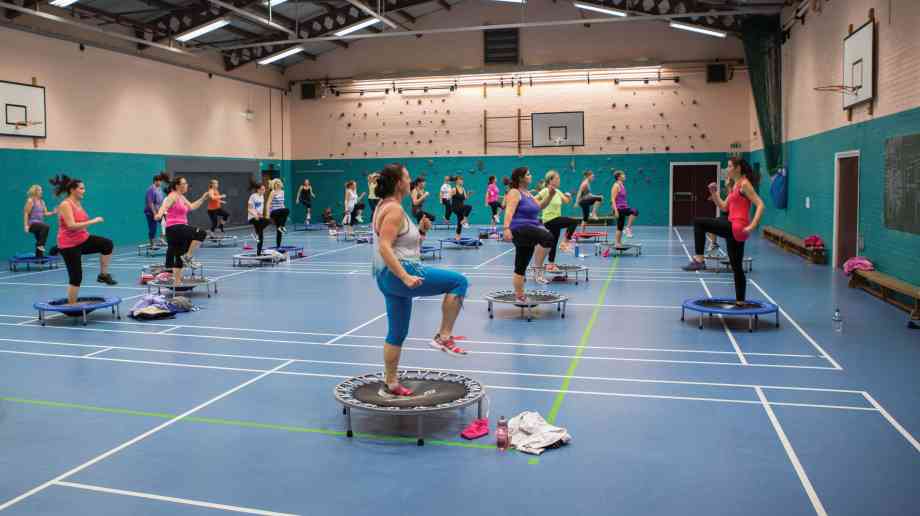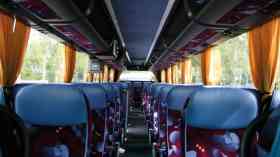
When a school moves beyond working 9-5
Opening up school premises for public use can create better engagement between schools and their communities, provide greater commitment to the schools from local residents and create additional funding. Education Business explores the popular trend in detail.
A letting is defined as ‘any use of the school building and grounds by parties other than the school’. A school’s grounds potentially hold a range of educational, recreational and sporting facilities which can be used to meet a variety of needs not only for pupils, but for their parents, families and local communities.
In fact, a guidance document by the London Borough of Bexley lists the four reasons as to why school lettings may be beneficial to schools. These are: to raise income for the school; to better integrate the school into the local community; satisfy some of the needs of local individuals, groups and organisations; or to increase the use of facilities which are of necessity under used by the school.
While the financial benefits are obvious – the income generated can be directly pumped back into school resources - this article will instead look at the community benefits. As we enter a season of change in school structure, with every school having to become an academy by 2022, the links between schools and their communities could conceivably be damaged.
Academy schools lie beyond the control of local authorities, receiving direct funding from the Department for Education, and rely on a self-governing structure. The very idea of self‑governing casts shadows over the relationship between schools and their local communities. Even within my own experience of the external use of school grounds, an array of opportunities come too mind – from firework displays, sports matches, fundraising events, church meetings, not to mention the use of school swimming pools and gyms.
While the evidence behind an academy‑school improvement correlation has been hotly debated, very few contend against the positive influence that parents, families, local businesses and communities can have on educational well-being and achievement.
Raising the school profile
A Department of Education (Northern Ireland) publication titled Every School a Good School – The Governors Role states that ‘school premises are a valuable facility for community use and schools are actively encouraged to consider making their premises available as a community facility where possible’.
Schools have an opportunity to reach out to those in their surrounding areas, and become a ‘hub’ of community use. Sports, youth services, cultural events, fundraising, and adult learning all help contribute to personal, health, economic and community development.
It must be said that a large majority of schools in the UK do make the most of their facilities and are opening up their premises to the wider community, there are some schools who have, so far, failed to promote the availability of their facilities, or remained shut off to the possibility.
However, while the immediate thought envisioned when questioning external use of school premises is how will the community benefit – it is just as important to acknowledge the benefits from the opposite end. Schools have a lot to offer to their local communities, but they also have a lot to gain.
Creating a positive perception and engaging with those living and working near the school can lead to the school’s profile being raised. Parents already have an interest in their child’s school and education, but enhancing the school’s popularity can lead to prospective parents desiring their pupils to also learn there, resulting in larger numbers of admissions and a higher school profile.
Extending the school day, extending learning
Amongst other, more contentious, issues in his March Budget, Chancellor George Osborne stated that secondary schools in the UK will gain additional funds, directly from a sugar tax on fizzy drinks, to extend the school day and offer more after-school activities.
However, with the funding only available to 25 per cent of schools, and no clear distinction made to distinguish between the out of school activities that are currently on offer and those that fall under the Chancellor’s statement, the issue remains complicated.
However, research from the Nuffield Foundation has suggested that after school clubs and sports groups improve the academic performance of primary school students from disadvantaged backgrounds.
The report stated: “Compared with disadvantaged children who did not attend an after-school club at the age of 11, those who attended an after-school club one or two days per week had made significantly more progress than predicted.
“Those who attended an after-school club one day per week had, on average, a 1.7 point higher actual Key Stage 2 score than predicted based on their prior attainment and circumstances, while those who attended an after-school club two days per week had on average a three point higher actual total point score than predicted.”
The research also found that poor children who attended after-school clubs developed better social, emotional and behavioural skills than those, also from similar social circumstances, who did not. This benefits the community aspect of letting out school facilities and premises – creating the necessary pathways for young people to learn and develop outside of school hours.
Sporting facilities
Opening sports facilities to the community could see your school deliver health benefits locally – while also creating a valuable, and often necessary, source of income. According to Sport England, nearly 40 per cent of sporting facilities in England are on school sites, with 62 per cent currently opening their facilities to their local communities.
Three quarters of sports halls and artificial sports pitches and a third of swimming pools in England are located in schools, enjoyed by children during term time but left dormant during the holidays or in the evening. Facilities are being underused and schools undervalued.
In June 2015, Sport England launched a comprehensive new online resource called ‘Use Our School’ to promote and raise awareness of this type of provision. The digital tool, originally developed in partnership with 40 schools and industry experts, aims to support schools in providing sports access as well as improve and sustain their current community programmes.
Since its launch, schools across the country have been reaping the rewards of leasing their sports facilities out of hours. They are playing a vital role in the provision of sport in their local communities, providing volunteering and vocational opportunities to their students, enjoying increased local status, and many are generating additional income.
Jayne Molyneux, Sport England’s Strategic Lead for Youth, said: “We know what an important role schools play in their local community and we want to actively support those schools who already open up their facilities for community use, and those who are considering doing so.”
With nearly two thirds of schools across England already offering their facilities for community use, it is obvious that the access is a win-win for both the community club or sport and the individual school. Sport England’s aim is to facilitate and support the development of this provision.
Strength in community
The school landscape is in a constant state of change and development. Free schools, independent schools, academy schools and trusts are just a few of the changes that have emerged in recent years. A school has a responsibility, not only to its students, but also to parents. Likewise, parents have a responsibility towards the school and this extends into the wider community. Communities should be proud of their schools and promote them within their areas. A key way to promote and maintain healthy relationships with local schools, is to maintain constant interaction and involvement. Schools can meet the needs of communities in a variety of ways and should be encouraged to do so openly and willingly.
While the role of local authorities in schools may be coming to an end, let’s hope that the role of the local community remains as active as ever.
Further Information
www.sportengland.org/facilities-planning
Latest News
30/10/2025 - 01:28
In the wake of the Raac crisis, the DfE spent £5 million on research into the condition of school buildings, which is due to conclude in spring 2026.
30/10/2025 - 01:09
Malmesbury Primary School in Wiltshire has submitted plans for a major expansion, funded by entrepreneur James Dyson.
30/10/2025 - 00:55
Monday's Every Pair Tells a Story campaign to protest to highlight the national crisis in SEND provision.
29/10/2025 - 09:19
Estimated data from the Department for Education reveals that 470,000 pupils under 16s use local authority funded transport to get to school.
28/10/2025 - 09:29
Timeline set for removal of Reinforced Autoclaved Aerated Concrete







